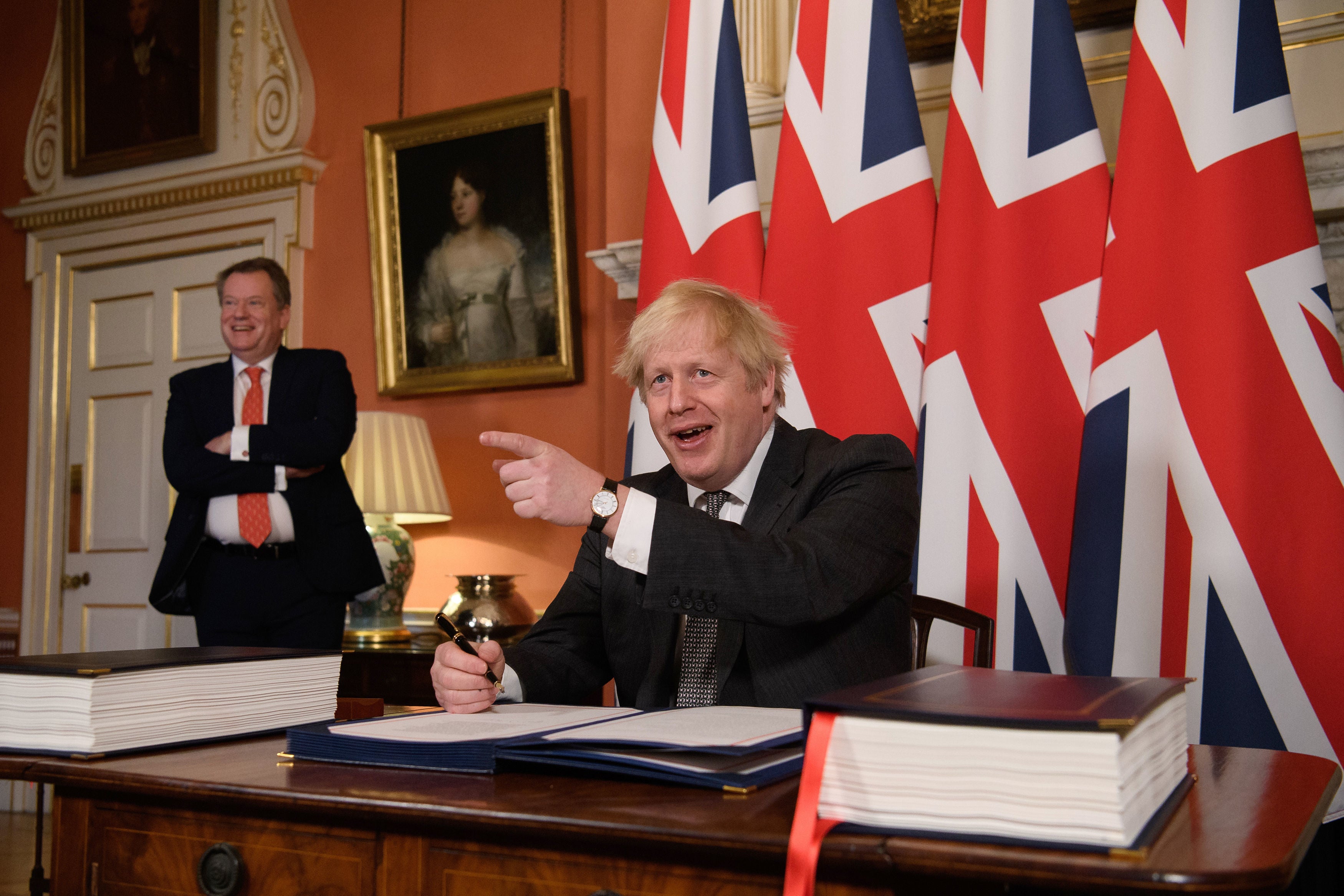The cold reality of Brexit is biting – and it looks like worse is to come
Officials in both London and Brussels have been surprised at how quickly talk of a positive new partnership has evaporated, writes Andrew Grice


The cold reality of Brexit is biting. UK exports to the EU fell by more than 40 per cent in January; although ministers hope this will prove a blip, businesses doubt it. Exporters are at a disadvantage because the EU introduced full border checks on UK goods on New Year’s Day. In contrast, an unprepared UK has delayed checks on EU imports until January next year.
Many UK companies are tied up in red tape. The irony is that Brexiteers promised to cut it, not allow it to multiply. Boris Johnson told us that Brexit “will be an opportunity for this country to get rid of some of the burdensome regulation that has accreted over the last 44 years”.
The diplomatic temperature is also getting colder. Officials in both London and Brussels told me they were surprised how quickly talk of a positive new partnership when the Christmas Eve trade deal was done has evaporated. Ominously, they believe things can only get worse before they can get better.
Both sides are culpable. Appropriately, the EU blames the chilly climate on David Frost, the newly appointed cabinet minister responsible for Brexit. EU officials think he goes out of his way to be provocative; that’s because he does. They were irked by his claim the EU is still sulking over Brexit and should now accept the relationship is between “sovereign equals.”
That was Frost’s mantra when he negotiated the hard Brexit now causing the very red tape which prompted him to unilaterally extend the suspension of some checks on goods going from Great Britain to Northern Ireland to prevent shortages in supermarkets. The EU will respond soon with legal action, which the UK will contest.
EU officials told me the problems in the province would have been resolved in talks that were underway, but UK ministers are sceptical. Brussels rightly points out that there will have to be a deal sooner or later; you can’t resolve a dispute by imposing a solution on the other side. The EU preferred the more conciliatory approach of Michael Gove, Frost’s predecessor as Brexit minister. In London, officials insist the change of personnel did not change the policy because it is driven by Johnson.
Worryingly, some senior EU figures now believe the UK’s actions are designed to show the Northern Ireland protocol is unworkable so the EU will be forced to renegotiate it. One said: “Johnson is being dishonest. He has no intention of sticking to a deal he signed up to.”
No wonder, then, that the trust needed to make any relationship work is in very short supply. But there are two sides to this story and the EU is not without blame. Its actions since the turn of the year look designed to distract attention from its inferior vaccine rollout to the UK’s. Misleading statements, such as claiming the UK had banned vaccine exports, have made it harder for Brussels to claim the moral high ground.
I thought Joao Vale de Almeida, the EU ambassador in London, gave both sides good advice when he spoke to Westminster journalists on Thursday: “We need to make an effort to change the mindset and give up on trying to score points on disputes of the past.”
The EU seems more ready to “move on” than the UK. Johnson looks addicted to replaying his greatest hit because he did “get Brexit done” and is keen to remind “red wall” voters that Keir Starmer wanted a second referendum. Labour’s virtual silence on what Brexit means for business, which without Covid would be a huge economic and political story, suggests Johnson is onto something. It’s surely time for Labour to get back on the pitch; the party could highlight the problems as part of Starmer’s pro-business stance.
However, Johnson is playing with fire by making Northern Ireland his battlefront with the EU. He might think that Democratic Unionist Party attacks on the protocol will help to undermine it. But the EU is adamant it will not rewrite an agreement on which the ink is barely dry.
Distancing himself from his own deal is not a good look just as he prepares to unveil his “global Britain” strategy with a long-awaited review of the armed, intelligence and diplomatic services. To seize the golden opportunity of holding the G7 presidency and hosting the Cop26 climate conference, Johnson will need friends in one high place – Washington. But the Biden administration, mindful of the fragile peace process, is watching events in Northern Ireland closely.
Members of Congress were lobbied by the Irish government and European Commission this week. Dispatching one more Whitehall official to Washington will be a flea bite compared to the powerful Irish lobby. If Joe Biden intervenes, his Irish roots will dictate which side he chooses. The prime minister’s hopes of Biden’s crucial backing on the world stage and for a US-UK trade deal would be at risk.
Johnson might be about to discover that playing politics in Northern Ireland is a dangerous game.
Join our commenting forum
Join thought-provoking conversations, follow other Independent readers and see their replies
Comments


Bookmark popover
Removed from bookmarks